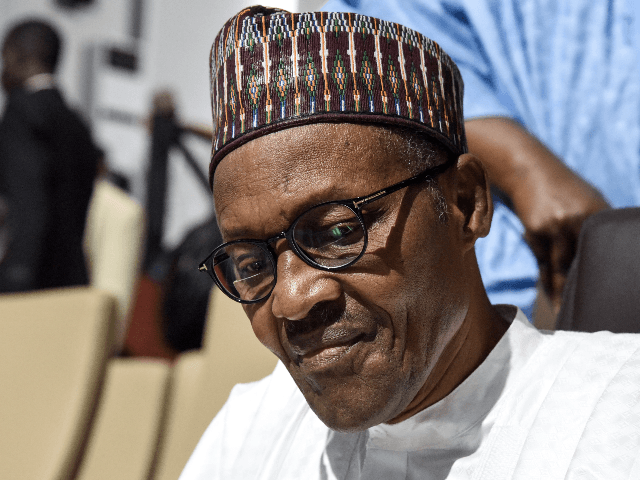Nigerian President Muhammadu Buhari warned Nigerians on Wednesday that the country’s economy is “too fragile to bear another round of lockdown” should a second wave of coronavirus sweep the nation.
Buhari made the admission on Wednesday in a statement released through his spokesperson, Garba Shehu, to commemorate the birthday of Muhammad, a designated public holiday in the country. Nigeria is about 50 percent Muslim. An estimated 90 million Islamic faithful reside in the country, constituting the fifth-highest Muslim population in the world.
“Looking at the trends in the other countries, we must do all we can to avert the second wave of the [Chinese coronavirus] pandemic. We must make sure that our cases, which have gone down, do not rise again. Our economy is too fragile to bear another round of lockdown,” the statement read, according to Nigeria’s Daily Trust on Wednesday.
Buhari advised all Nigerian citizens to continue observing coronavirus protocols mandated by the state, including social distancing, wearing sanitary masks, and frequent handwashing.
As Africa’s largest oil producer, Nigeria and its economy rely almost exclusively upon the commodity. The oil sector has suffered from declining oil prices during the pandemic, largely due to governments in countries around the world enforcing lockdowns, which disrupt global supply and demand chains and decrease trade and shipping.
As Buhari admitted on Wednesday, the declining oil prices have severely crippled Nigeria’s economy, which is Africa’s largest. Oil accounts for less than ten percent of Nigeria’s GDP, but amounts to over 90 percent of the nation’s foreign exchange; the commodity provides over 60 percent of Nigeria’s government revenue, according to the Council on Foreign Relations.
The World Bank in mid-September published a study of the coronavirus pandemic’s socioeconomic impacts on Nigeria over the past several months.
According to a survey conducted between April 20 and May 11, the World Bank found that “42 percent of overall job loss could be traced directly to COVID-19 [Chinese coronavirus], with a higher percentage of lost employment among the poorest (49 percent) and urban (48 percent) households, relative to the wealthiest (39 percent) and rural households (38 percent). The commerce, service, and agricultural sectors were hit hardest by the spread of the virus.”
Although the overall share of respondents who said they were working had recovered by July, the report said there was some evidence at the time “of people moving in and out of work. Only 34 percent of respondents have been working continuously since mid-March, while 66 percent have experienced some period of time out of work.”
“The most widely experienced shocks in the country continue to be increases in the prices of both major food items consumed (affecting 90 percent of households) and farming/business inputs (affecting 64 percnet of households). Distressingly, the share of households experiencing these two shocks has increased since April/May,” the World Bank reported.
“As of July, many households were resorting to coping mechanisms that can have further longer-term negative impacts, such as reducing food consumption (69 percent of households who experienced shocks) and drawing down their savings (29 percent of households who experienced shocks),” according to the study.

COMMENTS
Please let us know if you're having issues with commenting.